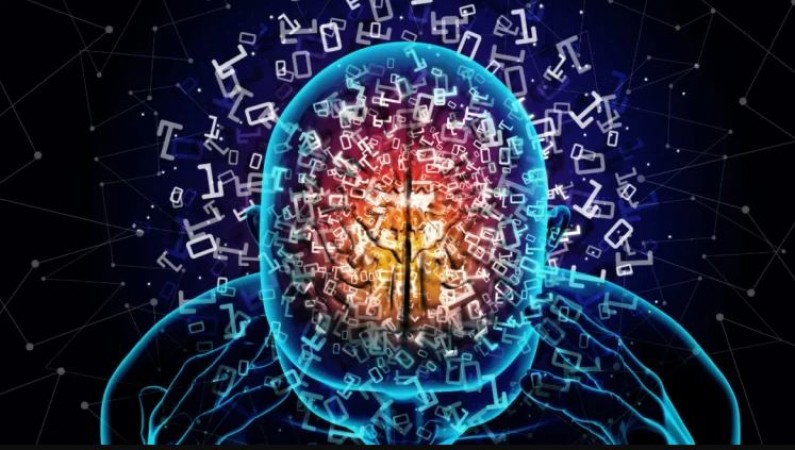
The human brain is an extraordinary organ that continues to captivate scientists, researchers, and enthusiasts alike. Its complexity and capabilities are nothing short of awe-inspiring, making it the crown jewel of the human body. In this article, we'll delve into the wonders of the human brain, exploring its intricate structure, astonishing functions, and the remarkable mysteries that continue to baffle us.
1. The Incredible Complexity of the Human Brain
The human brain, weighing approximately three pounds, is the control center of the nervous system. Within this small mass of tissue lies a vast network of billions of nerve cells called neurons, and even more astonishing are the connections between them, known as synapses. This complex interplay of neurons and synapses enables the brain to process information, control bodily functions, and support consciousness.
2. The Power of Neuroplasticity
Once believed that the brain's structure was fixed after a certain age, we now know that the brain is remarkably adaptable through a phenomenon called neuroplasticity. Neuroplasticity allows the brain to reorganize and form new connections in response to learning, experiences, and even injuries. This remarkable ability contributes to our capacity to learn new skills and recover from brain injuries.
3. The Mysteries of Memory
Memory is a fascinating aspect of brain function. Our brains are capable of different types of memory, such as short-term, long-term, explicit, and implicit memory. Memories are formed through a process of encoding, consolidation, and retrieval, involving various brain regions, including the hippocampus and amygdala. However, memory is not infallible, and conditions like amnesia highlight the fragility of this remarkable ability.
4. The Surprising Link Between the Brain and Emotions
The human brain plays a central role in experiencing and regulating emotions. The limbic system, a group of interconnected structures, is responsible for processing emotions and forming memories linked to emotional experiences. Emotional intelligence, the ability to understand and manage emotions, also relies on specific brain regions, and it profoundly influences social interactions and well-being.
5. The Brain's Role in Creativity and Innovation
Creativity is a quintessential human trait, and the brain's involvement in this process is profound. The default mode network, a group of brain regions, is highly active during creative endeavors. Understanding the neurological basis of creativity allows us to explore ways to enhance our creative thinking and innovation potential.
6. The Brain's Influence on Decision Making
Decision making is an integral part of daily life, and the brain's prefrontal cortex plays a vital role in this cognitive process. Emotions and logic often intersect during decision making, and understanding the interplay between these factors can help us make better choices. However, the brain is not entirely rational, and it can be susceptible to biases and heuristics that may lead to suboptimal decisions.
7. Curious Cases of Brain Disorders
The human brain is susceptible to various disorders that can result in unique and bizarre conditions. For instance, split brain syndrome, a rare condition resulting from the separation of the brain's hemispheres, can lead to peculiar behaviors. Synesthesia is another intriguing phenomenon where the senses intertwine, causing individuals to experience the world differently. Additionally, the case of Phineas Gage, who experienced a dramatic personality change after a traumatic brain injury, offers valuable insights into the brain's role in personality.
8. The Brain's Connection to the Gut
The gut-brain axis is an intricate bidirectional communication system between the brain and the gut. The gut's microbiome, a collection of trillions of microorganisms, influences brain health and mental well-being. Studies have revealed that the gut microbiome can impact mood, behavior, and even cognitive function. The profound connection between the gut and the brain highlights the importance of a healthy lifestyle for maintaining optimal brain function.
9. The Future of Brain Research and Technology
Advancements in brain imaging techniques, such as functional magnetic resonance imaging (fMRI) and electroencephalography (EEG), have revolutionized our understanding of the brain. These tools allow researchers to study brain activity in real-time and explore complex brain networks. Moreover, the development of brain-computer interfaces shows promise in assisting individuals with neurological conditions and offers potential applications in the field of artificial intelligence. However, ethical considerations surrounding brain technology and privacy remain crucial aspects to address.
The human brain remains one of the most enigmatic and fascinating frontiers of scientific exploration. Its unparalleled complexity and adaptability continue to inspire us to unlock its secrets further. As we journey into the future, advancements in neuroscience and technology will undoubtedly bring us closer to understanding the full potential of this extraordinary organ, paving the way for new possibilities in medicine, education, and beyond.
Raaj Kiran's Mysterious Absence from Bollywood
Martial Art Majesty: The Diverse Styles of Kung Fu Revealed
A Journey Through Rapids and Gates: Exploring Canoe Slalom and Kayak Sprint